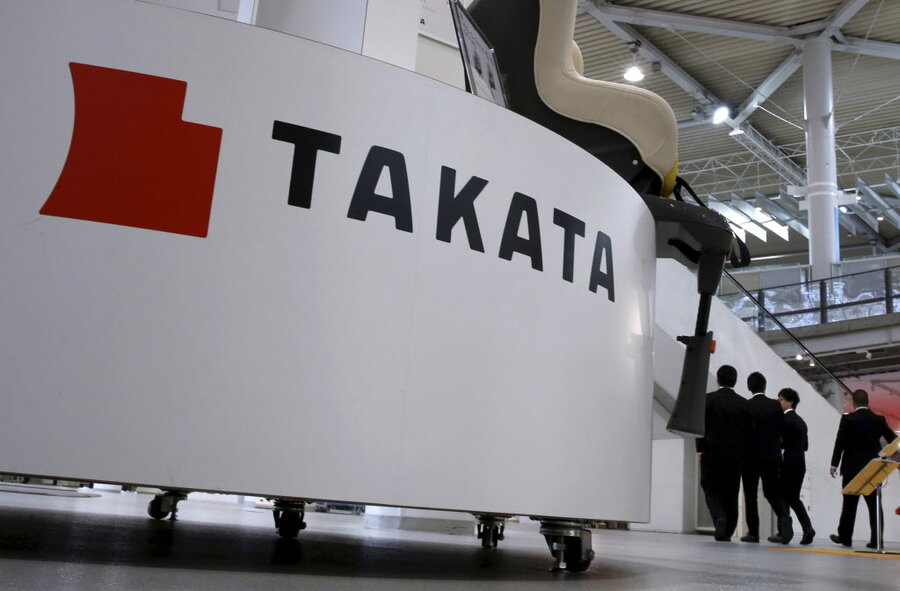90 million more vehicles may be recalled in Takata airbag case
At last count, the long, drawn-out Takata airbag recall affected roughly 29 million vehicles in the U.S. According to a new report, however, that figure could soar to 120 million in the near future.
The reason, of course, is the ammonium nitrate that Takata has used in its airbag inflators. Studies of the devices are ongoing, but analysis strongly suggests that Takata's airbag systems can allow moisture intrusion, and over time, that moisture can destabilize the ammonium nitrate.
When that compound becomes unstable, it can cause airbags to deploy with too much force, ripping airbags and sending hot shrapnel hurtling toward passengers. To date, over 100 injuries and at least ten deaths around the globe have been linked to Takata's airbags, and more are being investigated.
Initially, the problem with Takata's airbags seemed limited to older devices, especially those found in vehicles that spent long periods of time in areas with high humidity, like the U.S. Gulf Coast. However, company documents show that Takata plants in Mexico and the U.S., which assembled the fatally flawed airbags found in U.S. vehicles, were riddled with quality control problems.
Former Takata managers reviewed those documents and agreed that they were accurate, describing the quality failures as "chronic". Dozens of emails outlining those failures span from 2001 to 2014. According to Reuters, problems at the plants included "metal shavings inside some inflator parts; improperly welded inflator casings; bad propellant wafers, and bent or damaged parts".
Because the issues at Takata's plants persisted for nearly a decade and a half, regulators are having a very hard time establishing which of the company's airbags are safe and which are not. And so, there is a very real possibility that the National Highway Traffic Safety Administration will order a recall of allTakata airbags that made use of ammonium nitrate. That would, of course, mean more headaches for American motorists and huge costs for Takata and for the automakers that used its airbags.
Complicating matters is the fact that Takata knows how many inflators it produced with ammonium nitrate for the U.S. market, but figuring out how many vehicles they're in will be far more difficult. In some models, the faulty inflators are found just on the driver's side, in others, they're on the passenger's side, and in others, they're found in both positions. Estimates suggest that some 70 million to 90 million vehicles contain the devices but haven't yet been recalled.
There is a slim bright side, though: in the face of much, much criticism, Takata finally backed down from its tone-deaf statements about the safety of ammonium nitrate*. In November, the company agreed to stop using the compound by 2018. And Takata went a step further, promising to declare allairbag systems using ammonium nitrate to be unsafe, unless it could prove otherwise by 2019.
This article first appeared at The Car Connection.





